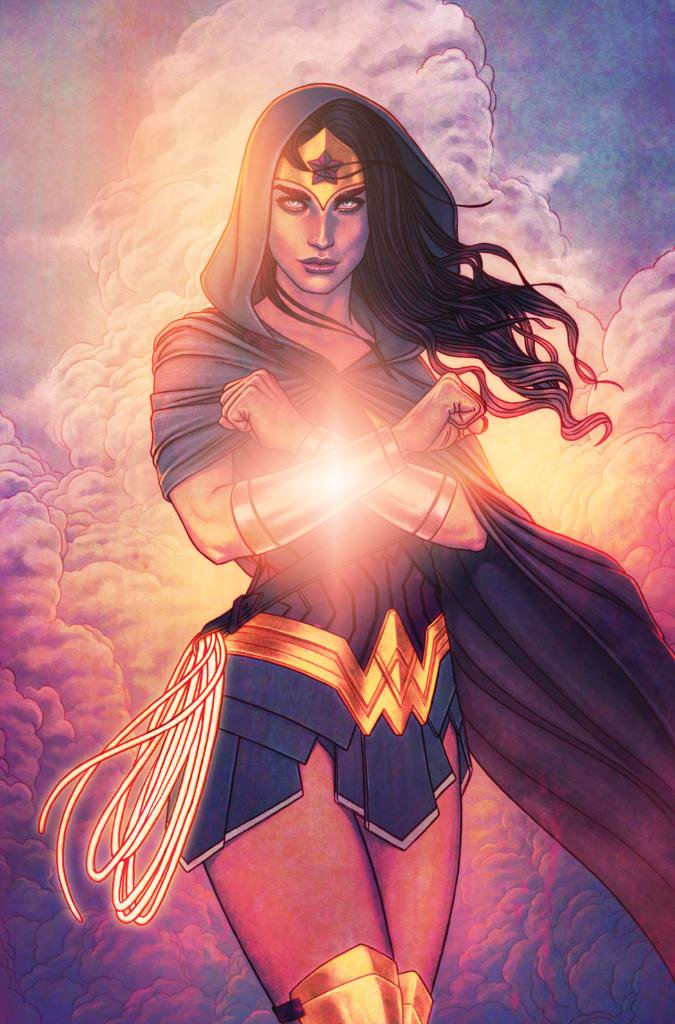TWH – A few months ago, our columnist, Storm Faerywolf, wrote about the modern superhero, Wonder Woman, created by the American psychologist and writer William Moulton Marston. Storm wrote, “Let me begin this missive by stating that it is my sincere belief that the character ‘Wonder Woman,’ the beloved superheroine of comic book fame, is a modern form of an ancient goddess… I mean it with all the sincerity and deep spiritual reverence that a person of considerable devotion can offer.”
Newly published research in social psychology explores how cultural differences frame our experiences when interacting with the idea of heroes and heroism.
A six-part research study from the University of Limerick published in the Personality and Social Psychology Bulletin explores the impact of collectivistic and individualistic cultural values frame interactions with superhero characters. Collectivistic cultures tend to admire group goals, harmony in groups, maintaining relationships and order, and duties and obligations. Individualistic cultures, however, tend to admire autonomy, strength, self-reliance, personal achievement, assertiveness, and independence. Collectivism and Individualism were framed as extremes of a single cultural dimension. It is one of several dimensions used by cultural researchers to map world cultures.
China, India, Indonesia, Ghana, Guatemala, and Japan are some examples of collectivistic cultures in the world. China is often held up as an exemplar of a collectivistic society, holding individual rights and freedoms as secondary to societal plans and goals.
Australia, Germany, Ireland, South Africa, and the United States are some examples of individualistic cultures in the world. The United States of America is often held up as an exemplar of an individualistic society, holding individual rights and freedoms as primary to societal plans and goals.
The researchers noted that, “Philosophers and social scientists have offered a multitude of definitions of heroes, but most fail to encompass the complexity and multi-faceted nature of the term.”
They highlighted prior research that found among the characteristics superheroes generated in responses from children were being “brave, honest, strong, beautiful, loyal, and rich.” Subsequent researchers found other descriptors such as “intelligent, loving, religious, caring, leader, talented, hardworking, motivated, role model, kind, strong, and creative” ultimately identifying a core set of eight characteristics:” strong, selfless, charismatic, resilient, inspiring, smart, reliable, and caring.”

Image ©DC Comics – via Twitter
The researchers also commented that earlier studies had noted the prevalence of three broad heroic types: civil heroes, martial heroes, and social heroes. Civil heroes risk their lives to save others during emergencies but have no formal training. Martial heroes were trained to handle dangerous emergency situations, and social heroes, were those who handle non-emergency situations.
The research sought to determine whether these types of heroes and their characteristics would be mitigated by the cultural dimension of collectivism-individualism.
In the first study of their research, the investigators asked Chinese participants to identify what features they associate with heroes and heroic action. They found eight distinctive features: patriotic, righteous, responsible, respected, dedicated, noble, masculine, and decisive. But, when they asked Western participants, patriotism was excluded from the set of distinctive features.
The researchers noted that “one reason could be the different cultural values people hold. People from collectivistic cultures are more likely to define themselves as aspects of groups and to prioritize in-group goals. Patriotism, at a group level, fulfills important functions for building group unity and mobilizing individuals to act in ways that will favor their group or country.”
In subsequent studies that were part of the same research, the researchers found that “Chinese participants rated patriotic, masculine, righteous, dedicated, responsible, respected, and noble as being more related to their personal view of heroes than American participants.”

However, they found that American participants rated “strong, powerful, altruistic, personable, honest, leader, proactive, courageous, caring, and talented as being more related to their personal view of heroes than the Chinese participants.”
But terms like “humble, fearless, determined, risk-taker, moral integrity, brave, intelligent, conviction, protects, exceptional, decisive, sacrifice, selfless, helpful, compassionate, and inspiration” did not discriminate one culture from another.
The researchers also found that the conception of heroes in the Chinese sample could be captured by the phrase, “A person showed features of masculinity, dedication, patriotism, righteousness, nobility, and responsibility throughout his or her life. S/he is also respected by many people.”
That same phrase for the American sample would be, “A person showed features of strength, power, proactivity, talent, leadership, and courage throughout his or her life. Many people have described her/him as honest, altruistic, personable, and caring.”
The research highlights how certain heroic acts are framed by the cultural psychology around heroism. The research, for example, explains, how exposing governmental behavior through whistleblowing is understood as a positive act of courage in Western individualistic societies but an act of betrayal in Eastern collectivistic societies, particularly given that patriotism appears to be a main descriptor that differentiates the societal culture.
As for the types of heroes and the status of emergencies in framing the perception of heroism, collectivist and individual cultures also showed important differences.
The researchers wrote, “People from individualistic cultures (e.g., the United States) may be more sensitive to the personal causes of social heroes, such as their individualistic characteristics. Compared with other types of heroes, social heroes strongly emphasize collectivistic features, and they incorporate features (e.g., loyalty to the country and willingness to sacrifice their own interests for the country) that are strongly related to values that Chinese people tend to adopt. Hence, Chinese participants, compared with American participants, are likely to perceive social heroes as being more heroic than the other two types of heroes.”
The Wild Hunt is not responsible for links to external content.
To join a conversation on this post:
Visit our The Wild Hunt subreddit! Point your favorite browser to https://www.reddit.com/r/The_Wild_Hunt_News/, then click “JOIN”. Make sure to click the bell, too, to be notified of new articles posted to our subreddit.